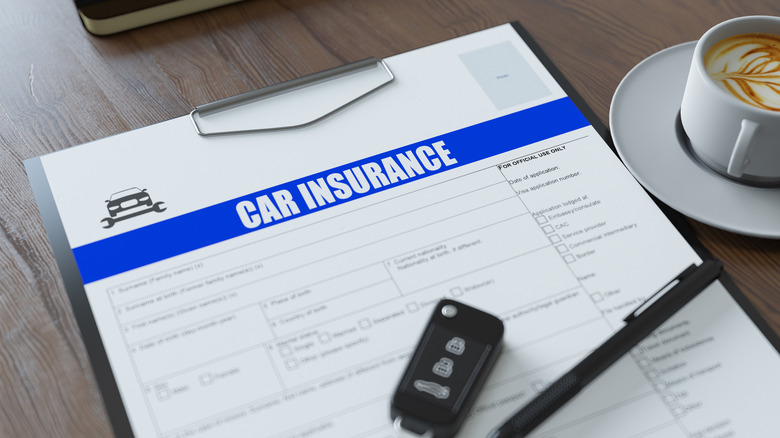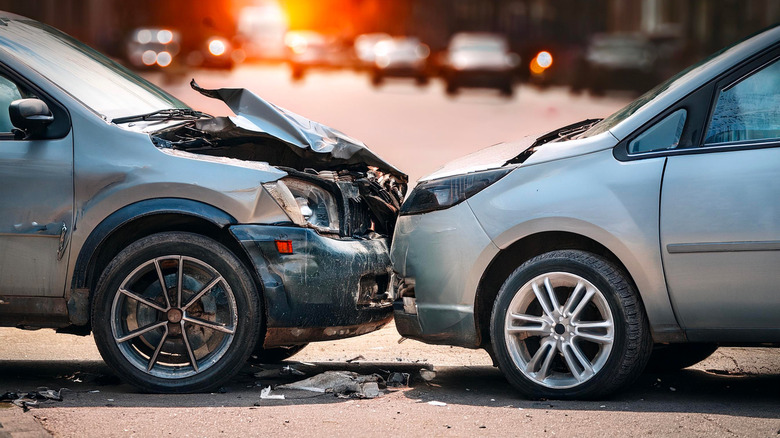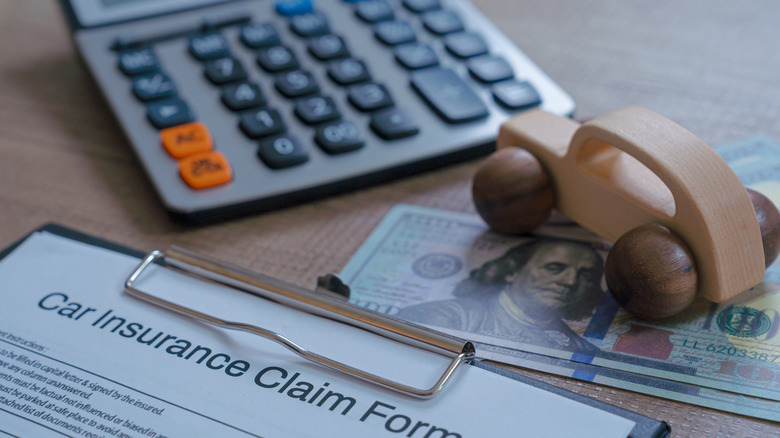Why You Should Avoid Cheap Car Insurance
It's a simple fact of life: if you own a car, you need car insurance. But unfortunately, that coverage often comes with a hefty price tag. In fact, car insurance premiums are increasing. According to the Consumer Price Index, there has been an upward trend with rates rising sharply over the past five years. So, it comes as no surprise that many drivers are looking for ways to save money on their premiums. If you're like most consumers, you start your search for car insurance by gathering as much information as possible about the many providers available. From there, becoming familiar with our ranking of every major car insurance company (rated worst to best based on data from Consumer Reports) can help narrow down your list of candidates.
Given how expensive insurance policies can be, you may be tempted to choose the cheapest one you come across — a decision that could end up costing you in the long run. That's because most inexpensive insurance policies come with serious limitations, including minimal coverage, high deductibles, and limited claims support. The next time you see an advertisement for cheap insurance and think it must be too good to be true, remember, you're probably right. You're better off investing in a policy that includes comprehensive coverage that will truly protect you if you get in an accident or your car is stolen or damaged, even if it means your monthly premiums are higher.
Minimal coverage can lead to high out-of-pocket costs
As you shop around for car insurance, choosing the cheapest policy might seem like the best move, especially if you live in a state like California, where car insurance is pretty expensive and hard to get. However, you should think twice before signing on the dotted line because you may find yourself responsible for thousands of dollars in damages if you're found liable for an accident and your policy doesn't offer enough coverage, which is the case with most low-cost insurance.
Most states mandate a minimum amount of liability coverage that drivers must carry, while lenders may require additional coverage, such as collision or comprehensive, if you're financing your vehicle. Depending on your state, these limits could be something like $25,000 for bodily injury per person, $50,000 per accident, and $25,000 for property damage. The problem with the minimum coverage that comes with many cheap insurance policies is that these amounts may not be enough to fully cover medical bills or the cost of repairs if you get into a serious accident.
If you're at fault in an accident involving injuries and the costs are more than your policy's bodily injury limits, you'll be personally responsible for paying any of the remaining medical expenses. Similarly, if you're unlucky and damage one of the most expensive cars of all time, you can quickly surpass your coverage limits. In that case, you'll have to pay the difference, which could put assets like your home at risk. Something else to remember: Minimum liability policies don't cover damage to your own vehicle, so if your car is totaled or vandalized, you'll be stuck covering the full cost of repairs or replacement out of pocket.
Cheap insurance can come with expensive surprises
The problem with cheap insurance is that it comes with hidden costs that can leave you in a financial bind when you need to use it. These policies often come with high deductibles because raising the deductible is one of the easiest ways for insurers to keep premiums low. With most cheap insurance policies, you'll have to pay more out of pocket before your insurance kicks in than you'd have to with a standard or full-coverage policy. For example, if your deductible is $1,500 and you get into an accident that results in $3,000 in damages, you'll be responsible for paying the first $1,500. If you're not prepared for this expense, it can put a strain on your finances.
When you sign up for cheap car insurance, you may also be signing up for policy exclusions that limit your coverage. Before you decide on any insurance plan, cheap or otherwise, be sure to read the fine print. Your low-cost insurance may not cover scenarios like natural disasters, theft, or vandalism. If you don't have comprehensive coverage, you could be left unprotected in these situations and with significant out-of-pocket expenses.
Another problem with low-cost car insurance is that these companies often provide subpar customer service, which can make it hard to file a claim. To make matters worse, in order to keep premiums low, these insurers sometimes reject or underpay on valid claims. When you're dealing with the stress following an accident, the last thing you want to deal with is unresponsive or inefficient claims support, but if you opt for a cheap policy, that may be exactly what you end up getting. Cheap insurance will give you enough coverage to be legal on the road, but not much more.


